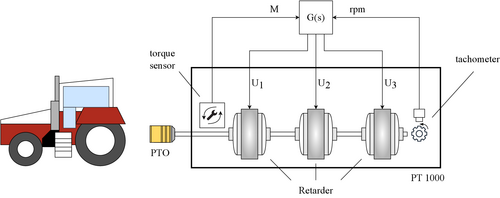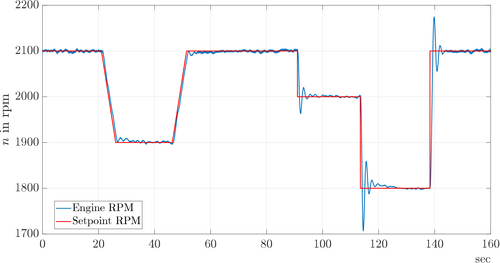Modeling and automation of a power take off (PTO) test rig with eddy current brakes
Supervisior: Univ.-Prof. Dr. Marco Da Silva
Co-Supervisor: Dipl.-Ing. Dr. Andreas Tröls
External Supervisor: Dipl.-Ing. Michael Zöttl, Matthias Pfeiffer

In the agricultural engineering field, the power take-off (PTO) shaft constitutes a crucial core element of the drive technology for external devices that can be connected to a tractor. For agricultural machinery manufacturers, it is therefore important to measure the performance of tractors and investigate the behavior of the tractor, especially its power take-off drive.
In collaboration with the industry partner CNH Industrial and the Institute of Electrical Measurement Technology, a PTO test rig should be improved. This testbench uses eddy current brakes for simulating a load for a tractor. The setup is to be captured through measurement techniques and regulated through a control loop to minimize the influence of disturbances.
 Fig. 1: Systematical representation of the whole test rig with test object (tractor).
Fig. 1: Systematical representation of the whole test rig with test object (tractor).
Furthermore, a graphical interface is to be implemented to allow users to manually define predetermined load profiles. In addition to the practical aspect, a simplified model of the system is to be created to facilitate understanding of the functionality on a physical basis.
 Fig. 2: Example for a control process of the engine speed of the tractor.
Fig. 2: Example for a control process of the engine speed of the tractor.
Keywords: agriculture, closed-loop control, CNH, eddy current brake, engine speed, full-load curve, PTO (power take off), test rig, torque, tractor
September 18, 2024
The thesis will be inaccessible for a 5-year period beginning September 18, 2024.
 Go to JKU Homepage
Go to JKU Homepage


